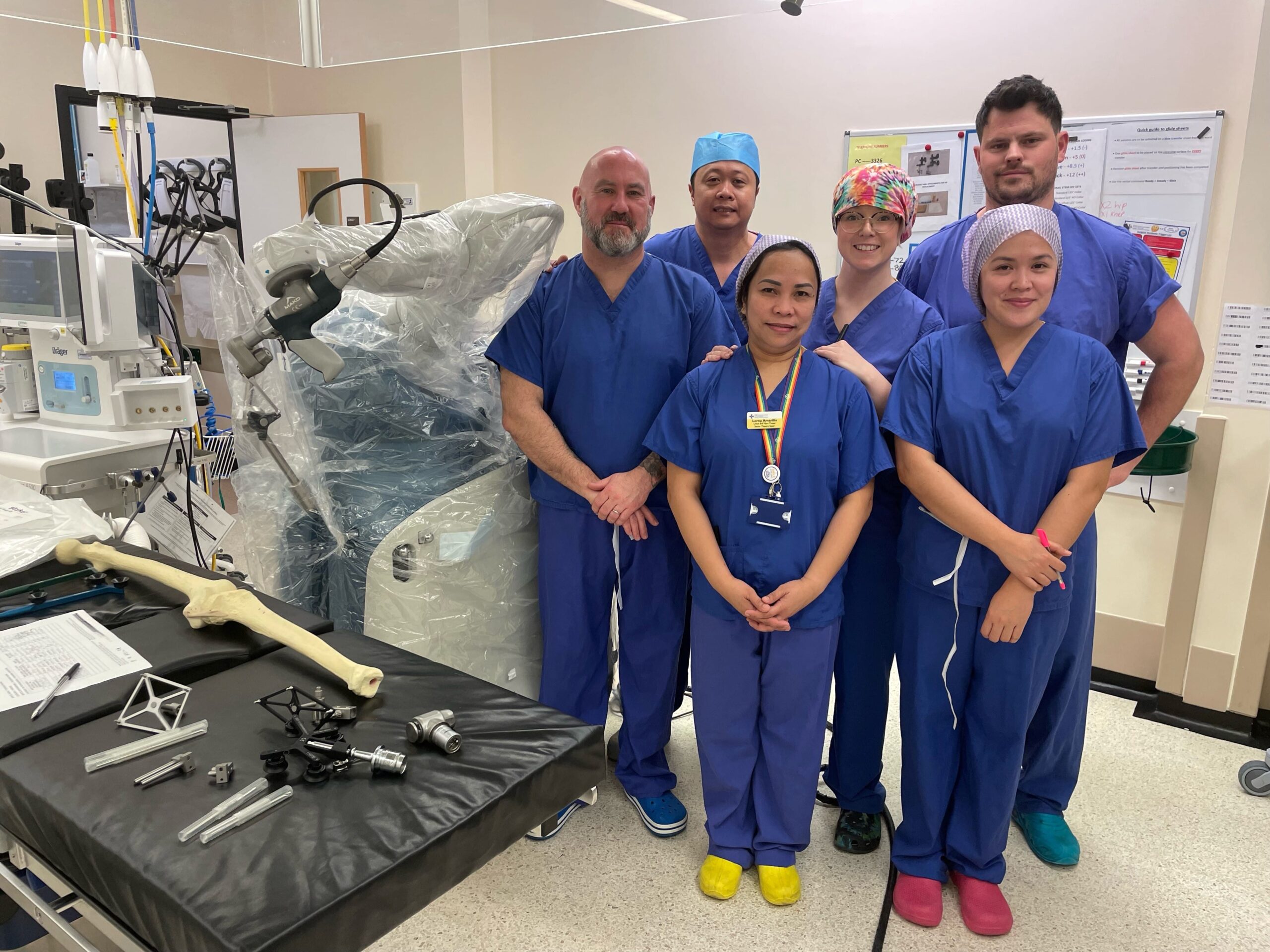
From February 2023, state-of-the-art surgeon guided robots will have their surgical skills put to the test as researcher’s trial their use in hip and knee replacement surgery for the first time in the NHS in Wales. The clinical trial is funded through the National Institute for Health and Care Research and delivered in partnership with Hywel Dda University Health Board.
Joint replacement surgery is one of the most common operations performed by the NHS. The aim of the trial is to determine whether using robots results in better outcomes for the joint replacement patients.
In robotic assisted hip and knee replacement surgery, a robotic arm helps preparing the bone and inserting the components to a pre-programmed three-dimensional plan. Using a robot to perform the surgery is thought to enable more precise, consistent surgical techniques, which may help to reduce variation and potentially prevent poor outcomes and complications that can require additional surgery.
Delivered jointly between Warwick Medical School at the University of Warwick, University Hospitals Coventry and Warwickshire (UHCW) NHS Trust, and the Royal Orthopaedic Hospital (ROH) in Birmingham, the robotic trial will be tested at Hywel Dda University Health Board from early 2023.
Professor Peter Cnudde, Consultant Orthopaedic Surgeon, said: “Robot-assisted surgery is used with great success in many procedures and can bring numerous advantages when compared to standard surgery. It is a big achievement for the team to be at the forefront of a world-leading multi-centre study like this, and we’re really pleased to be able to get the clinical trial started.
“Adding robot-assisted surgery to the surgical provision available at Hywel Dda UHB will, I believe, be of real benefit to our patients, and I look forward to leading this important piece of work.”
Professor Chris Hopkins, Head of Innovation & the Tritech Institute at Hywel Dda University Health Board said: “We are pleased that our surgeons at Hywel Dda UHB are playing a leading role in this clinical trial. We hope that the programme will lead to improved patient outcomes and go some way in tackling pressures in our system and our planned care waiting lists. The research findings will undoubtedly help orthopaedic surgeons across our health board and across the world understand the most effective tools and technology for performing hip and knee replacement surgery and deliver excellent patient care.”
In addition to recording clinical and patient outcomes, the study will also include an in-depth health economic analysis to inform the NHS if this element of robot-assisted technology should be widely adopted.
Professor Leighton Phillips, Director for Research, Innovation and University Partnerships at Hywel Dda University Health Board added: “At Hywel Dda UHB, we pride ourselves on enabling our staff to engage in research and development that not only meets the needs of our current population but forges the way for future patients. We welcome the partnership with the Warwick Medical School at the University of Warwick, University Hospitals Coventry and Warwickshire (UHCW) NHS Trust, and the Royal Orthopaedic Hospital (ROH) in Birmingham and the National Institute for Health and Care Research and look forward to influencing future orthopaedic innovations through our findings.”
The project is one of a number of patient-centred research and development projects led by Hywel Dda University Health Board’s TriTech Institute & Research & Development divisions.

Help keep news FREE for our readers
Supporting your local community newspaper/online news outlet is crucial now more than ever. If you believe in independent journalism, then consider making a valuable contribution by making a one-time or monthly donation. We operate in rural areas where providing unbiased news can be challenging. Read More About Supporting The West Wales Chronicle

























